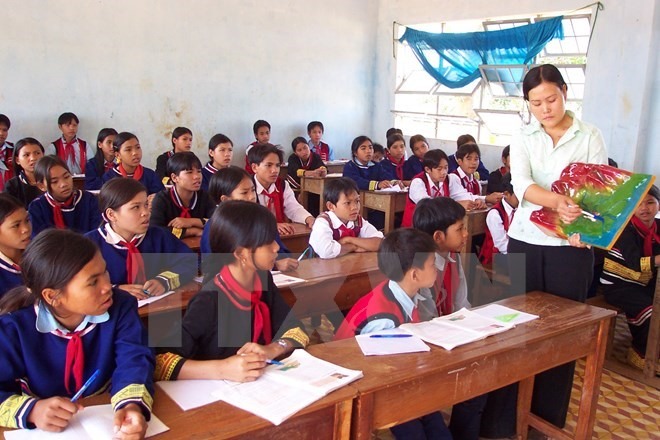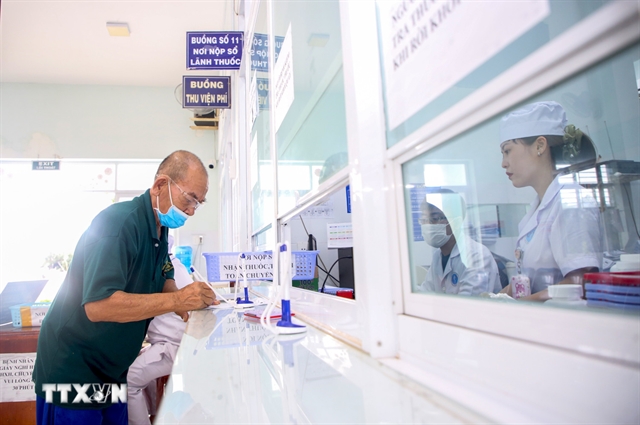 Society
Society

Promoting the rapid and sustainable development of ethnic minority groups and mountainous areas is the consistent policy of the Party, State and Government of Việt Nam in the cause of socio-economic development.
 |
| A class for ethnic and minority students. — VNA/VNS Photo |
HÀ NỘI — Promoting the rapid and sustainable development of ethnic minority groups and mountainous areas is the consistent policy of the Party, State and Government of Việt Nam in the cause of socio-economic development.
That was the message from Deputy Prime Minister Trương Hòa Bình at the national workshop on Thursday on the current plans for ethnic minority group policies in the period of 2021-30.
For many years, the system of mountainous ethnic policy has been continuously improved, in line with the general development orientation, including support for education, health, sustainable poverty reduction, progress and social justice.
In the period of 2016-18, the Government issued 41 documents with priorities given to socio-economic development in ethnic minority and mountainous areas, including 15 national schemes and policies.
"Ministries and State agencies have tried their best to reduce poverty, achieving the national target programme on sustainable reduction," Bình said. .
"They have also implemented policies providing support and social security, ensuring there will be no cases of food shortage."
Speaking at the workshop, Minister and Chairman of the Committee for Ethnic Minorities, Đỗ Văn Chiến, said although the areas have achieved certain results, unemployment, poverty, natural disasters and diseases are still great challenges.
The percentage of poor households remains high among most ethnic minority groups. The rate of impoverished households accounts for nearly 53 per cent of the poverty-stricken households nationwide.
The average income of ethnic minority households is only 40 – 50 per cent of the region’s average income.
There are still about 21 per cent of ethnic minority people over 15 years old who cannot read and write well.
More than 54,000 households lack arable land, 58,000 families don’t have land to build house and 223,000 households need water for daily use, according to Chiến.
He said in order to limit the disadvantages, it is necessary to allocate adequate budget for ethnic minority people in disadvantaged and extremely disadvantaged groups.
Priority should be focused on investment attraction, forest economy, tourism, rural transport, raising cattle, investment in vocational, educational and medical establishments, creating high quality human resources and increasing preferential loans.
At the workshop, managers and experts shared the same view that policies on ethnic minority programmes and projects are unfocused. Moreover, it is difficult to find resources in project implementation and make full use of potential in the region.
The current policies fail to encourage the people to escape poverty by themselves and the co-ordination between ministries, sectors and localities in developing and implementing policies is still limited, they said.
Deputy PM Bình said in order to overcome existing shortcomings and limitations, the Government will integrate ethnic minority policies into a national development programme on the development of ethnic minority and economically disadvantaged areas.
He asked the Committee for Ethnic Minorities and ministries, State agencies, localities, scientists and experts to fully and comprehensively evaluate the national policy system in the period of 2016 - 18.
They were also required to properly analyse the status of life, income, livelihood and the level of access to culture, education and health of ethnic minorities, contributing ideas, suggesting orientations in order to build an ethnic minority group policy system which is comprehensive, synchronous and effective in the future. — VNS




